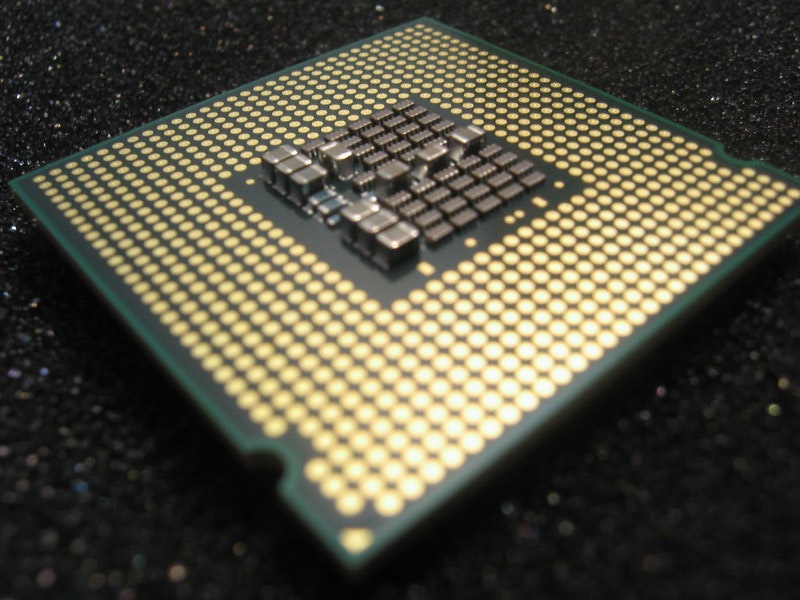Tedium - How Giants Fall 📉
|
|
|
|
|
|
|
Older messages
Belated Expansion 🕹️
Monday, December 2, 2024
Why a forgotten expansion port on a famous console is emerging now. Here's a version for your browser. Hunting for the end of the long tail • December 02, 2024 Hey all, Ernie here with a mea culpa.
Power User Vs. Strong POV 💻
Saturday, November 30, 2024
Elementary OS doesn't work like most Linux distros. Here's a version for your browser. Hunting for the end of the long tail • November 29, 2024 Power User Vs. Strong POV The just-released
Corporate Casserole 🥘
Monday, November 25, 2024
How marketing and lobbying inspired Thanksgiving traditions. Here's a version for your browser. Hunting for the end of the long tail • November 24, 2024 Hey all, Ernie here with a classic
Not Ready For The Camera 📸
Saturday, November 23, 2024
What (and who) video-based social media leaves out. Here's a version for your browser. Hunting for the end of the long tail • November 23, 2024 Not Ready For The Camera Why hasn't video
The Floater Manifesto 🛟
Wednesday, November 20, 2024
Some people use one operating system. I use many. Here's a version for your browser. Hunting for the end of the long tail • November 19, 2024 The Floater Manifesto Our technology should be good
You Might Also Like
💎 Issue 458 - Why Ruby on Rails still matters
Thursday, February 27, 2025
This week's Awesome Ruby Newsletter Read this email on the Web The Awesome Ruby Newsletter Issue » 458 Release Date Feb 27, 2025 Your weekly report of the most popular Ruby news, articles and
📱 Issue 452 - Three questions about Apple, encryption, and the U.K
Thursday, February 27, 2025
This week's Awesome iOS Weekly Read this email on the Web The Awesome iOS Weekly Issue » 452 Release Date Feb 27, 2025 Your weekly report of the most popular iOS news, articles and projects Popular
💻 Issue 451 - .NET 10 Preview 1 is now available!
Thursday, February 27, 2025
This week's Awesome .NET Weekly Read this email on the Web The Awesome .NET Weekly Issue » 451 Release Date Feb 27, 2025 Your weekly report of the most popular .NET news, articles and projects
💻 Issue 458 - Full Stack Security Essentials: Preventing CSRF, Clickjacking, and Ensuring Content Integrity in JavaScript
Thursday, February 27, 2025
This week's Awesome Node.js Weekly Read this email on the Web The Awesome Node.js Weekly Issue » 458 Release Date Feb 27, 2025 Your weekly report of the most popular Node.js news, articles and
💻 Issue 458 - TypeScript types can run DOOM
Thursday, February 27, 2025
This week's Awesome JavaScript Weekly Read this email on the Web The Awesome JavaScript Weekly Issue » 458 Release Date Feb 27, 2025 Your weekly report of the most popular JavaScript news, articles
💻 Issue 453 - Linus Torvalds Clearly Lays Out Linux Maintainer Roles Around Rust Code
Thursday, February 27, 2025
This week's Awesome Rust Weekly Read this email on the Web The Awesome Rust Weekly Issue » 453 Release Date Feb 27, 2025 Your weekly report of the most popular Rust news, articles and projects
💻 Issue 376 - Top 10 React Libraries/Frameworks for 2025 🚀
Thursday, February 27, 2025
This week's Awesome React Weekly Read this email on the Web The Awesome React Weekly Issue » 376 Release Date Feb 27, 2025 Your weekly report of the most popular React news, articles and projects
February 27th 2025
Thursday, February 27, 2025
Curated news all about PHP. Here's the latest edition Is this email not displaying correctly? View it in your browser. PHP Weekly 27th February 2025 Hi everyone, Laravel 12 is finally released, and
📱 Issue 455 - How Swift's server support powers Things Cloud
Thursday, February 27, 2025
This week's Awesome Swift Weekly Read this email on the Web The Awesome Swift Weekly Issue » 455 Release Date Feb 27, 2025 Your weekly report of the most popular Swift news, articles and projects
JSK Daily for Feb 27, 2025
Thursday, February 27, 2025
JSK Daily for Feb 27, 2025 View this email in your browser A community curated daily e-mail of JavaScript news Introducing the New Angular TextArea Component It is a robust and flexible user interface





